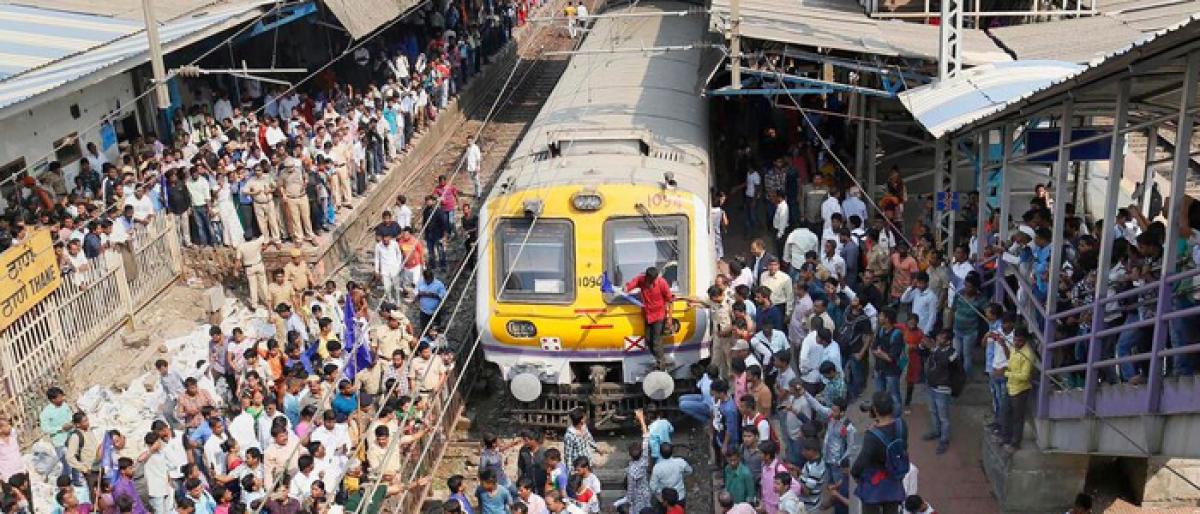Live
- Dr LB College, Woxsen teams win in Climate Tank Accelerator event
- CM Revanth petitions for change in Paleru rly line
- Udupi MP seeks more key highways on top priority
- New diet plan rolled out at welfare hostels
- HRF demands for nation-wide caste census
- SP launches Medicover family health card
- Chiranjeevi Visits Allu Arjun for Lunch Amid Ongoing Legal Turmoil
- Covid ‘scam’ FIR row: Congress pursuing politics of vengeance, says BJP
- Decades-old temple re-opens after 46 years in Sambhal
- Chandrababu to Inspect Polavaram project amid security measures tomorrow
Just In

Amid allegations and counter allegations, it is still unclear who instigated the Bhima-Koregaon clash that sent ripples of violence and rioting across Maharashtra but the political reactions to the unfortunate incident points to a disturbing road ahead as the country hurtles towards the 2019 general elections.
Amid allegations and counter allegations, it is still unclear who instigated the Bhima-Koregaon clash that sent ripples of violence and rioting across Maharashtra but the political reactions to the unfortunate incident points to a disturbing road ahead as the country hurtles towards the 2019 general elections.
It now seems certain that the caste-division formula that we saw during the Gujarat Assembly elections will be increasingly replicated elsewhere as BJP’s political rivals try to find a way to fracture the Hindu votebank. The odds for such a possibility are extremely high because on the one hand we have upper-caste anxiety resulting in aggressive demand for a share of the reservation pie and on the other, a rising Dalit assertiveness that feeds on decades of social oppression. Caste fault lines have always existed. In 2014, Modi had been able to paper over the cracks through his campaign of hope. That hope is receding fast, reality is setting in and the fault lines are regaining prominence, according to First Post.
For decades Dalits have been celebrating the victory of the Battle of Bhima Koregaon, that was fought on January 1, 1818 but this year they were opposed by 'right wing' groups.The fault line between Marathas and Dalits in Maharashtra are once again exposed. Many say the violent protests since January 1 are a grim reminder of underlying Dalit oppression in the state. Two hundred years ago, Maratha forces led by Peshwa Baji Rao II tried to attack Pune which was held by the British. The British authorities dispatched a strong contingent of forces to defeat the Marathas.
The battle was fought for 12 hours after which the Marathas were forced to retreat. Dalits traditionally celebrate this day as most of the soldiers in the Bombay Native Infantry which fought the Peshwa's men were Mahar Dalits. Dalit thinkers and activists consider this victory as a significant episode in history. Many Dalit activists think it was a victory of the oppressed over the upper-caste establishment of the Marathas, according to NDTV.

© 2024 Hyderabad Media House Limited/The Hans India. All rights reserved. Powered by hocalwire.com







